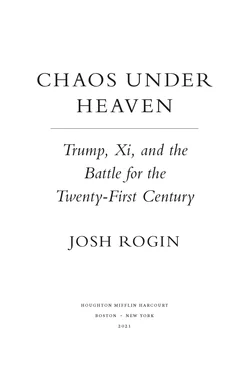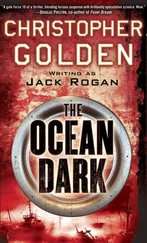His claim about China’s imperial ambitions was not a mere assumption, Pottinger wrote, but rather the inescapable conclusion that anyone would reach if they were watching the Chinese Communist Party’s actions and listening to what it was saying—in its own language, to its own people. “The Party’s goal of hemispheric supremacy isn’t the whim of President Xi Jinping,” he wrote. “It stems from Party aspirations going back decades; Xi is merely accelerating the timeline. But the United States has a big vote in whether China achieves this aspiration.”
Unlike Bannon, Pottinger wasn’t calling for the destruction of the CCP. He was calling for America to reinforce a balance of power with China in Asia that was slipping in the wrong direction. The idea was to fix the structural problems in the world order we built, which Beijing had been exploiting ever since we welcomed them into that order.
Pottinger didn’t want to decouple the US and Chinese economies, like Bannon and Navarro. He argued for addressing China’s abuses in trade, intellectual property theft, industrial theft, and the rest through tough negotiations. He warned that much would depend on how the United States treated allies. He called for finding a strategy that allowed both the United States and China to succeed, but not on Beijing’s terms. “As such,” he wrote, “this strategy, if executed, would constitute a viable and sustainable understanding with China that brings advantages to both sides. China can thrive whether or not our strategy succeeds. America will struggle if we fail.”
The paper urged that when American policy makers think of China, they should “think Jupiter, not the Sun.” Pottinger saw the countries in the region as the front lines of US competition with China and the places where the friction would be most prominent. Those countries were more influenceable and therefore needed more of our attention. “China thouldn’t be the ‘sun’ around which our regional diplomacy revolves,” Pottinger explained. “It should be considered but one of the planets—albeit a massive one—in a solar system of governments we continuously engage.”
Pottinger also called for a robust program to counter Chinese influence and interference in various parts of American society. The United States, he wrote, must stop Chinese efforts to intimidate, censor, and punish the citizens, media, and corporations of democracies when Beijing objects to their viewpoints and activities. He said the expansion of China’s propaganda outlets must be stopped and “reciprocity”—a concept that in the context of China meant demanding equal treatment from Beijing compared with how the United States treated China—should be enforced where possible. Why should the United States allow the CCP to send hundreds of “journalists” to Washington while restricting the number of US journalists in China and harassing them the entire time? Beijing had come to expect that an imbalanced relationship was their entitlement, and some balance needed to be restored.
Pottinger was arguing for a broad reset of US-China relations based on recognizing the basic principle that the United States was not going to be able to fundamentally change the nature of the Chinese system—nor should it try. The idea was to deal with the reality of China, to focus on stopping the worst of its behaviors and building resilience against the rest—all while protecting American values and interests.
China’s malign actions, Pottinger argued, followed a simple pattern. Why, for instance, did China lie to the Obama administration by promising not to militarize the South China Sea? Because the United States didn’t make it clear that such aggression would incur costs. And after Beijing did it, it was too late to impose costs. This pattern of China’s is like “salami slicing,” shaving sliver after sliver until they had eaten more than their portion, Pottinger warned. China’s strategy is to nudge the strategic environment incrementally in its favor, sometimes acting so brazenly as to raise alarms in the region, but not quite aggressive enough as to provoke significant countermeasures by neighbors or the United States. After a backlash, China slows its activities until the world stops paying close attention again, then repeats the cycle, rearranging the continental order to its favor, one small earthquake at a time.
Pottinger argued that only by realizing this—and changing our behavi or to stop the erosion of our relative power and influence in Asia—could US-China relations be set on a course that avoids confrontation without losing the strategic competition altogether. “China’s former premier, Zhu Rongji, said in 2001 that U.S.-China relations will never be great, but they also needn’t be awful . . . That goal, rather than a romantic one, would be wise for both sides to aspire to,” he wrote.
“Bill’s Paper” would later become the basis for two classified strategies on China, as well as the China section of the public-facing National Security Strategy, and feed into several initiatives and speeches made by senior Trump officials. Pottinger’s efforts to make concrete policy based on these ideas blossomed over the years, but the seeds were planted on the administration’s very first day.
When Doves Cry
Bannon, Pottinger, and Navarro were entrenching for a long fight. Meanwhile, the other member of Trump’s original China team, Pillsbury, migrated to an outside advisory role and became a key backchannel connection between the two governments. Just days before the inauguration, he made his own trip to Beijing. There he met with various Chinese officials and experts who were frantically trying to assess what they were dealing with. Pillsbury would make five more trips to Beijing to help demystify the Trump administration for Chinese leaders. Slowly but surely, he also would become a trusted adviser on China to Trump and Vice President Pence.
Other hawks drifted in and out of favor with Trump—and their influence fluctuated correspondingly. Commerce Secretary Wilbur Ross was deeply involved in the China debate for the first year, as he partnered with Mnuchin to secure the deal that Trump had promised would correct a trade relationship that had fallen woefully out of balance. But Ross slowly and surely fell out of favor with the president, his friend for several decades. His tendency to freelance and his tendency to fall asleep in meetings eventually convinced Trump he was not up for the task. Nevertheless, his Commerce Department ended up taking tough actions against China many times, often when Mnuchins Treasury Department refused to act.
The more pro-Beijing officials, for their part, also began to settle in for the war of attrition. Mnuchin, the former investment banker and movie producer, became the head of the Treasury Department and the lead official for dealing with Beijing on trade negotiations, along with Lighthizer. He also played a complex and covert game pushing back against the China hawks inside the system for years, defending the interests of his Wall Street associates and, some would say, the pro-China lobby in Washington. “I don’t know why you guys keep saying China’s a threat,” Mnuchin said in an Oval Office meeting early on. “You live in your DC bubble. Nobody outside DC thinks China is a threat.”
Did Trump see China as a threat? Economically, sure. But on national security, certainly not at first. He just wanted to make a deal. And in their own ways, both he and Mnuchin would find a willing accomplice in the president’s son-in-law, Jared Kushner, who was emerging as one of the biggest advocates for China within the administration.
Kushner’s role as a China adviser conflicted with his own personal business interests almost immediately. In early January, less than two weeks before the inauguration, it had been revealed that he had met with a senior Chinese business leader in New York only one week after the election, to discuss a deal that would have seen the Chinese conglomerate Anbang Insurance Group invest $400 million in the Kushners’ tower at 666 Fifth Avenue.
Читать дальше











